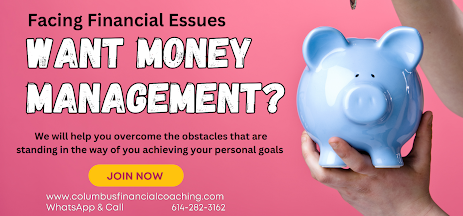Debt Reduction: Smart Debt Reduction Techniques
If the average for all American homes is used, it is almost half that
Let's face it: if you have consumer debt, you pay a hefty interest rate on your borrowing. So your financial situation will significantly improve if you can eliminate that expense. I have never met somebody who regretted getting out of debt, Larry Burkett, the late founder of Crown Financial Ministries, used to remark.
Read more: Why do you need to hire a Financial Coach?
What are consumer debts?
Stop Borrowing Money
Stopping any borrowing is the first and most crucial step toward debt relief. No more borrowing money, using credit cards, or accruing additional debt.
The most fundamental adjustment that must be made is changing your perspective on money and debt. First, you need to know the actual cost of using a credit card and taking out additional loans to prevent further debt accumulation.
Decide to live off of cash while you make your improvements. You're still in the early stages, so don't worry about debt consolidation or balance transfers. Before having a strategy and understanding your circumstances, you shouldn't exchange one type of debt for another.
Eat each mouthful slowly
These are some honest words: The following skills are necessary to get out of debt: self-discipline, perseverance, patience, and a solid strategy.
For many, it will involve taking one bite at a time, much like the proverbial elephant. First, you have to get going to do it. That easy. Start. Then proceed. Continue to continue up until the last obligation has been paid off.
Maintain a Spending Log
Finding where your money is going is the next step in quickly getting out of debt. With a complete understanding of what you pay for and how you spend, it can be easier to identify where to make budget adjustments.
It's advisable to keep track of everyday expenses and all your monthly expenditures for at least a month. When tracking, remember to add your debt payment commitments.
You can keep tabs on your finances in a variety of ways. Among the most popular methods are:
Use a budgeting spreadsheet
jot down notes in a notepad.
Use a free personal finance app
Use trackers in banking apps
Observe receipts
Whichever approach you use, be sure it's one you'll use consistently and provide a complete picture of how much money you spend.
The debt snowball should be melted.
Use the "Debt Snowball" approach to achieve the most progress possible. First, list every debt you have on one piece of paper. Then, specify your debts' principal balances and the interest rates you pay, ranking them from highest to lowest.
Paying off the debt initially is more crucial if you are paying a higher interest rate. Why? After it is delivered, you will have much more money toward the following obligation. You should pay off your credit card company first, for instance, if you owe them $5,000 with 14 percent interest on a credit card and $20,000 with 5 percent interest on a school loan.
Call or text today for an appointment at 614-282-3162 or chat with us on WhatsApp. Or visit our website.
Create a Budget for Debt Reduction
Create a budget after keeping track of your expenditures. This budget should cover all your needs if you use your typical expenditure as a reference. You may save costs in other locations by using the tracking. You'll be able to discover where you're overspending and where you may make savings quickly without significantly impacting your life. Of course, adjustments may be needed in locations you wish to avoid making. To pay off debt, balancing livability and a strict budget is critical.
The writing down of the budget is a crucial step in the process. However, there needs to be more than just documenting your intended spending in written form; simply planning it in your head.
Financial goals should be included in your budget as well. You are 42% more likely to succeed in achieving your objectives if you write them down.
You undoubtedly see getting out of debt quickly as your top priority but pay attention to creating an emergency savings account. You can set new savings objectives once your debts are paid off. But remember to include them in writing so you can hold yourself accountable.
Give attention, not thought
Consider setting a goal to pay off your credit card company in 18 months by making a $275 monthly payment down the principal. You may now use that money toward the loan with the next-highest interest rate once that one is paid off. Do this often until you find the lowest interest rate. You could have over $1,000 per month available by the time you reach the student debt and place your focus on paying it off.
Pay More Than the Required Minimum
It would help if you aimed to pay as much as possible toward your monthly obligations to learn how to get out of debt quickly. Remember the debt snowball method: every opportunity to make larger payments will move you one step closer to debt freedom.
Set a monthly minimum that you will pay toward debt when you make your initial budget. About 20% of your whole revenue should go toward this. But, of course, adding more will help you reach your objectives more quickly.
Whatever your circumstance, paying more than the legal minimum is crucial. Be sure you do this regularly. Pay more than the minimum amount, even if you have a terrible month with unforeseen emergency costs. Still need help?


.jpg)



.png)
.png)
.png)

0 Comments